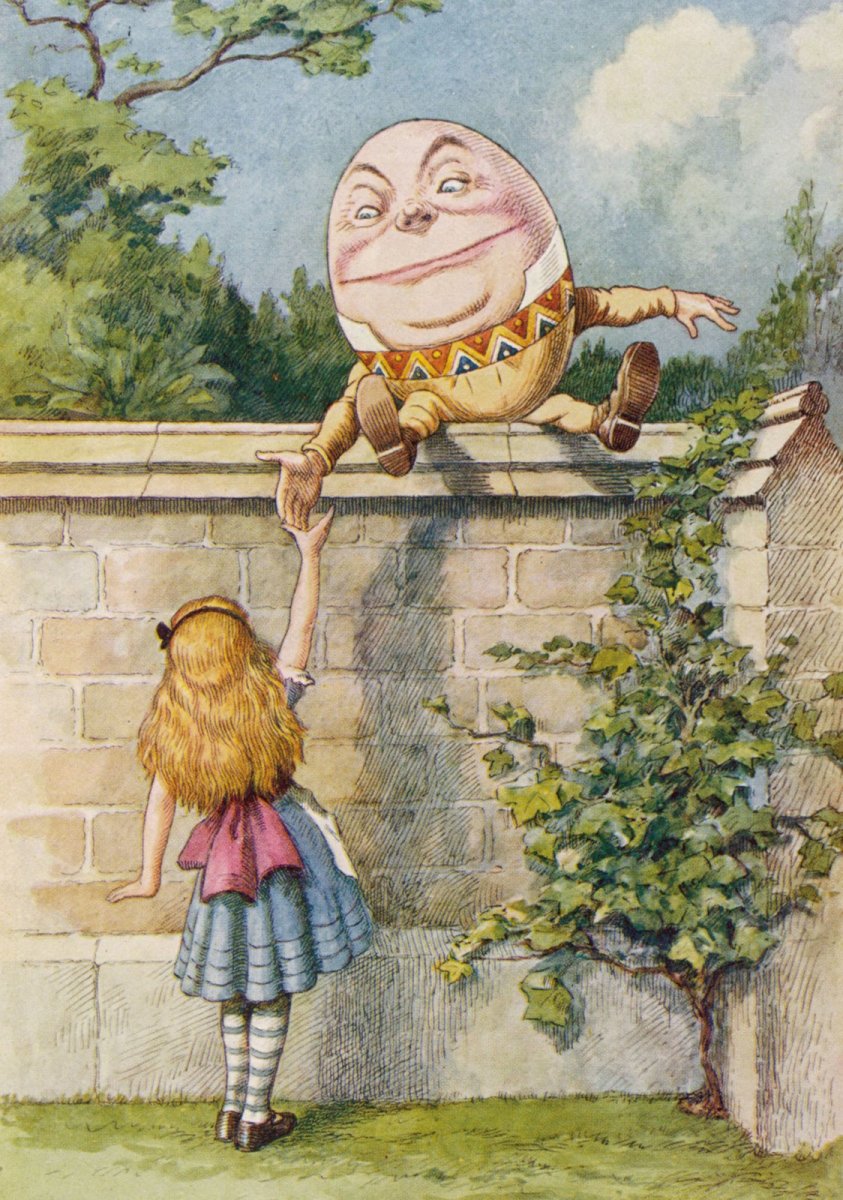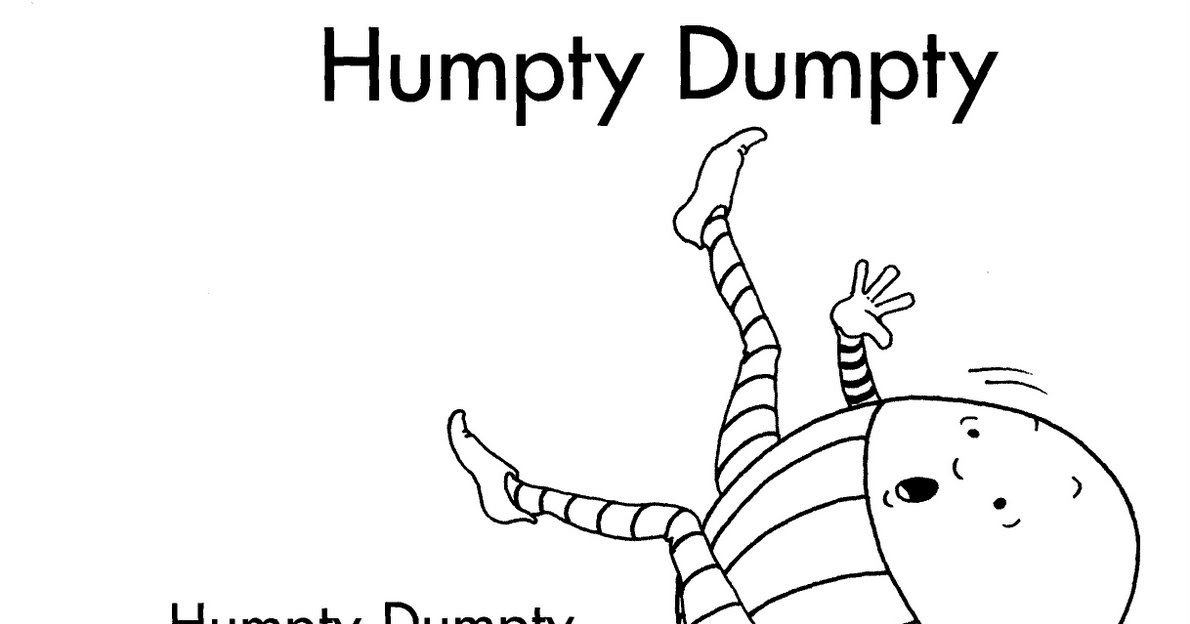
Meaning File:Humpty Dumpty 1 - WW Denslow - Project Gutenberg etext 18546.jpg Similar riddles have been recorded by folklorists in other languages, such as "Boule Boule" in French, "Lille Trille" in Swedish and Norwegian, and "Runtzelken-Puntzelken" or "Humpelken-Pumpelken" in different parts of Germany-although none is as widely known as Humpty Dumpty is in English. The rhyme is no longer posed as a riddle, since the answer is now so well known. The riddle may depend upon the assumption that a clumsy person falling off a wall might not be irreparably damaged, whereas an egg would be. The riddle probably exploited, for misdirection, the fact that "humpty dumpty" was also eighteenth-century reduplicative slang for a short and clumsy person. The earliest known version was published in Samuel Arnold's Juvenile Amusements in 1797 with the lyrics: Īccording to the Oxford English Dictionary, in the 17th century the term "humpty dumpty" referred to a drink of brandy boiled with ale. Origins File:MotherGooseHumptyDumpty.jpgĪn illustration from Walter Crane's, Mother Goose's Nursery Rhymes (1877), showing Humpty Dumpty as a boy Audio file "MotherGooseHumptyDumpty MIDI.mid" not found The melody commonly associated with the rhyme was first recorded by composer and nursery rhyme collector James William Elliott in his National Nursery Rhymes and Nursery Songs (London, 1870), as outlined below: It is a single quatrain with external rhymes that follow the pattern of AABB and with a trochaic metre, which is common in nursery rhymes. 13026.Īll the king's horses and all the king's men The rhyme is listed in the Roud Folk Song Index as No. As a character and literary allusion, he has appeared or been referred to in many works of literature and popular culture, particularly English author Lewis Carroll's Through the Looking-Glass (1872), in which he was described as an egg. The character of Humpty Dumpty was popularised in the United States by actor George L. Its origins are obscure, and several theories have been advanced to suggest original meanings.

The first recorded versions of the rhyme date from late nineteenth-century England and the tune from 1870 in James William Elliott's National Nursery Rhymes and Nursery Songs. He is typically portrayed as an anthropomorphic egg, though he is not explicitly described as such.

Humpty Dumpty is a character in an English nursery rhyme, probably originally a riddle and one of the best known in the English-speaking world. For other uses, see Humpty Dumpty (disambiguation).


 0 kommentar(er)
0 kommentar(er)
